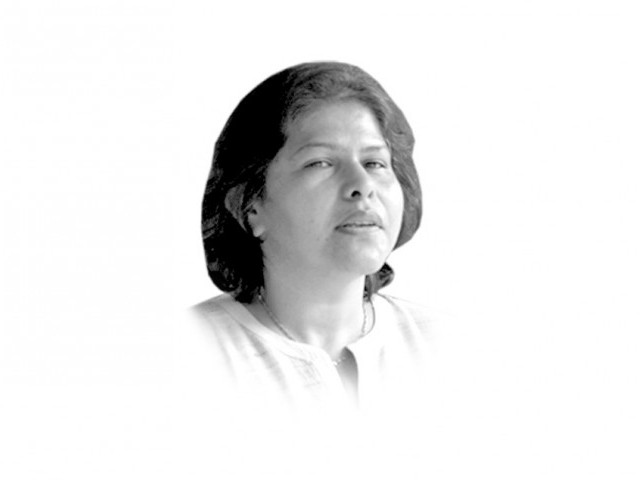It is the state’s time to spill blood in response to religious terrorism – Ayesha Siddiqa
Radicalism is like a live wire running through the state and society. It produces violence often when required as was obvious in Pakistan’s case. Apart from Khyber-Pakhtunkhwa, which suffered repercussions of the war next door, the actual violence was fairly manageable. There was nothing big taking place or on the scale of Peshawar except for some attacks on hard targets, or on shrines or on religious minorities or on people belonging to certain sects. Not that the latter type of attacks are not serious but these were always ignored and considered more as irritants rather than serious threats. We have noticed that this continues to be the case. Some of the police officers who were reputed to accommodate the ASWJ leadership in their areas are still serving. Even if they were just being ‘pragmatic’ or if there is even half a per cent chance of these officers holding beliefs against other sects, there is an urgent need to address this problem. Similarly, if outfits like Al Huda continue to go inside cantonments, there is a need to look at the matter.
This is not a case for secularism but an appreciation of what unfettered preaching of religion by radical groups has done in the past. Even if we argue that the bulk of people condemned the Peshawar attack, we are still not sure how many think otherwise (we certainly know that Maulana Abdul Aziz was unwilling to do so). In programming, it is important to have a hand on the pulse.
I am also reminded of the de-radicalisation programme conducted by the Punjab police at about three test sites, two of which were in south Punjab. A number of people on the Fourth Schedule were trained as electricians and then given small amounts of soft loans to start their ventures. Interestingly, the fence-sitters amongst these people reformed but the hardcore never did. In fact, some of these people used the money to set up or expand madrassas and continued with their frame of mind.
The lesson right now is that there are no tools for ideological engagement vis-a-vis these elements. Indubitably, this is a long battle. But it is not going to do well if it is abbreviated with ‘ifs’ and ‘buts’. The police and security institutions have sufficient intelligence to track those behind sectarian attacks. Cruel as it may sound, but perhaps it is the state’s time to spill blood (this relates to religious terrorism) to send a clear message of zero tolerance to both militancy and radicalism. Talks are equally important but will have to come later. Radical elements should not be allowed to hide behind their silence. It is important to remember that such elements are often more strategic than states. To use Malaysia’s example, radical parties even use pop music, social media and celebrities to convert people. Any form of mainstreaming of militant ideology has its pitfalls.
Excerpt from: Express Tribune, 26 Feb 2015

